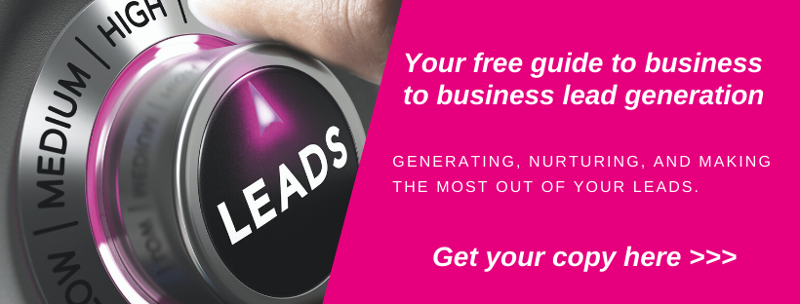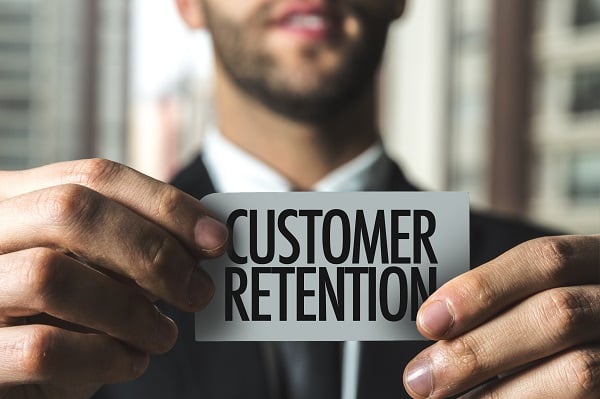Choosing a CRM platform is a decision which should not be taken lightly.
The right CRM can be a powerful tool for your marketing and sales teams to tap into. It can align sales and marketing processes and allow you to measure and optimise pipeline performance. The wrong CRM can become a costly and time-consuming mistake which is hard to reverse.
The CRM market is crowded, heavy on jargon and full of ‘over promises’. Different CRMs suit different business types, sizes and challenges - as a result, choosing the right platform requires careful consideration.
In this piece, we’ll share practical advice which will help you document your requirements, find partners that can meet them and choose the one that’s right for you.
If you are wanting a quick summary as to the secrets behind implementing the right CRM for your business do watch this short video.
Step one: understand your requirements
When buying new technology, it can be tempting to rush straight into researching possible solutions. But try to hold off on looking at any platforms until you’re clear on your requirements.
Your requirements will lead you to the right solution. If you start looking at features too early, you may end basing your decision on what the platforms can do, rather than what you need them to do to achieve your goals.
- You may like: What is a CRM and does your business need one?
A CRM will touch many parts of the business. It will obviously be used by sales and marketing, but it may also require input from your website team, system administrators and customer service. Ensure that everyone who will be involved in the implementation or use of the platform contributes to your list of requirements.
You may find it useful to divide your requirements up into three groups; marketing and sales processes, people, and technology. Here are a list of example questions your requirements may look to answer within these:
Marketing and sales processes
- What is the overall new business approach?
- What are the key customer journeys the platform needs to support?
- How do different teams work together to deliver and convert leads and how do you expect the tool to support and improve existing processes?
- Write the points above down, create a chart if possible, it may help you identify gaps in your processes.
People
- Who will be involved in the implementation and operation of the CRM tool?
- What are their current roles, responsibilities and skill sets?
- Will any training or hiring be required and can the supplier provide this?
- What level of ongoing support will you and your users need?
- How do you expect the tool to simplify or improve existing roles and responsibilities?
Technology
- What systems do you currently have in place that will be affected?
- What are the integrations that are required?
- Are there any legacy systems that might get in the way?
- Is your customer data ready to be inputted into a CRM system - for instance, do you have ‘hard copy’ data that needs to be converted to digital? Or incomplete data that needs to be cleaned or enriched? This is a good opportunity to review the data you already have and determine whether you WANT to transfer it into your new system.
- What are the compliance requirements (such as GDPR)?
James Gunn is an expert in helping businesses choose CRMs. He is also the founder of WhatCRM.co, which is full of useful advice to help small-to-medium-sized businesses navigate the CRM market. He will also be contributing a guest post for the next article in this series.
His Sales and Marketing Maturity Model helps businesses to assess their own readiness for a CRM platform and understand their own requirements. It only takes ten minutes and is totally free.
Step two: separate your requirements into ‘essential’ and ‘desirable’
Some of your requirements will naturally be more important than others. It’s important to know one from the other.
Take your list of requirements and divide them into essential and desirable. You may also want to include a reason why each of the requirements is on the list. This will help clarify your thinking and ensure that each requirement is justified.

You’ll find that some of your requirements are must haves, whereas others are things you’d like.
Separating them out will help you choose the platform that’s appropriate to your level of marketing maturity and the budget available.
You may also want to record the reason why each requirement is needed - if nothing else, this will help clarify your thinking and help you see which category it falls into.
Differentiating between essential and desirable requirements will help the vendors - the CRM platform retailers - focus on your essential needs, rather than selling features you which are nice to haves. The more preparation you’ve done, the more seriously the vendors will take you and the less likely their salespeople will be to push you towards a hasty decision.
Step three: research and approach vendors
There are thousands of potential vendors out there. You want a long-term partner with a good reputation, a large user base and evidence of financial stability. New platforms may bend over backwards to get you to sign up, but startups can be a risky choice.
You need a serious company who won’t go bankrupt, taking your customer data with it. You also need one that can provide rapid support in plain English during your working hours.
The established platforms dominate search rankings, making Google’s organic rankings a good place to find safe bets. Start off by making a longlist of 10 or so platforms that meet your essential requirements.
Look at each platform’s features but also their terms and conditions, pricing model and customer feedback. Once you have your longlist, dive deeper into your essential and desirable requirements to whittle your list down to a shortlist of 2 or 3.
Share this list of options with the project team for their input. Once you’re all agreed, contact your shortlisted vendors directly to request a demo or free trial. Make sure you share your full list of requirements with the platforms. The more they know, the more targeted their demo and trial features will be.
General overviews can be useful, but make sure you push them to show you how their tool can solve your specific use cases and requirements. Most platforms also have tiered pricing models, so give them an idea of your monthly budget to make sure they’re showing you features within your price range. But remember, this is a value purchase - a little extra investment that helps your business perform more successfully would be a positive decision.
You should also note the level of service you receive as a potential customer. Great customer service and support will be invaluable to your team when they’re getting to grips with the tool.
Most businesses will use a range of different tools and platforms in order to deliver their core service. Some are more foundational than others. A CRM tool, used properly, will sit at the core of your business processes and be used by multiple teams. For this reason, getting the right one is important. Understanding your needs and approaching vendors with a clear set of requirements and available budget will help them to help you find the best tool for the job. 



-1.png?width=800&height=500&name=Expert%20View%20(1)-1.png)
